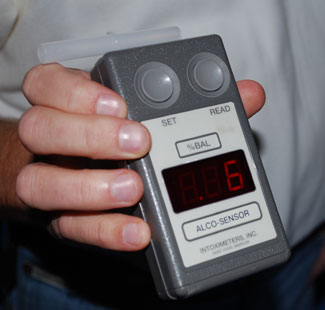
Preliminary Breath Test (PBT)
The preliminary breath test machine is the small breathalyzer machine that police use to test the blood alcohol content of a suspect at the scene of a drunk driving investigation. However, the PBT has been shown to be too unreliable to be used as evidence in the prosecutor’s case in chief during trial. The PBT result may be used in court as rebuttal evidence in order to show there was probable cause to arrest. Under MCL 257.625 a(2)(B)the PBT test may be used to form probable cause to arrest alone. The police officer must be properly trained in administering the PBT test and the PBT machine must be tested and calibrated at least once a month.
The implied consent statute does not apply to preliminary breath tests, thus, a person does not have to be under arrest to be administered the test. Under MCL 257.625a(2)(d) “a person who refuses to submit to a preliminary chemical breath analysis upon a lawful request by a peace officer is responsible for a civil infraction.” However, the determination of whether the officer’s request for a preliminary breath test is “lawful” is up for argument in many situations. A driver under 21 years of age who refuses a preliminary breath test may be subject to having 2 points placed on his/her driver’s license under MCL 257.320a(1)(u).
At Rudoi Law we understand the foundation needed for officers to administer a Preliminary Breath test, and we know how to challenge that foundation when the facts call for it.

